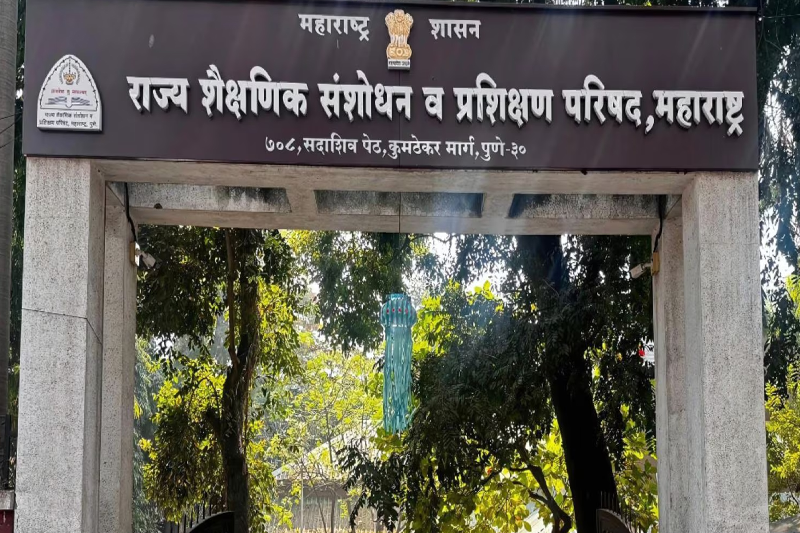
Maharashtra SCERT Opens Public Consultation on Draft School Education Curriculum
The Maharashtra State Council of Educational Research and Training (SCERT) has taken a significant step toward inclusive education reform by inviting public feedback on its proposed school education curriculum. Released on July 28, the draft curriculum is now live on the SCERT website — https://www.maa.ac.in/ — and will remain open for public comment until 5 PM on August 27, 2025.
In a press release issued by SCERT Director Rahul Rekhawar, the council called on a wide cross-section of society — including education experts, teachers, parents, scholars, officials, and civil society organisations — to actively participate in reviewing and refining the curriculum. The move is positioned as a part of Maharashtra’s ongoing efforts to make school education more responsive, participatory, and future-ready.
Public Engagement Encouraged Across All Social Segments
The SCERT has emphasized that all stakeholders are encouraged to provide suggestions, ensuring the curriculum development process is collaborative and transparent. The draft includes 20 academic and life-oriented subjects, reflecting a broad and interdisciplinary vision of education. These subjects include:
- Languages: Marathi, English
- Core Academics: Mathematics, Science, Politics, Economics, Geography, History
- Social and Civic Subjects: Civics, Social Work, Environmental Science
- Innovative Disciplines: Defence Studies, Traffic Safety and Civil Protection
- Thematic Studies: The World Around Us 1 & 2
- Physical Education: Physical Education and Fitness
This inclusive subject list reflects an attempt to go beyond traditional academics, addressing real-world issues like safety, defense, and civic responsibility — themes often underrepresented in school curricula.
Structured Submission Process for Feedback
SCERT has outlined a detailed structure for submitting feedback to ensure that suggestions are clear, relevant, and actionable. Contributors must include the following:
- Subject and class level
- Relevant page number and original text from the draft
- The required changes or corrections, including:
- A reason for the change
- Suggested revised text
- Personal information, including:
- Full name
- Telephone number
- E-mail address
- Residential address
Those wishing to submit feedback by post should address their envelope with the title:
“School Education Curriculum (Proposed) Draft-2025 – Comments (for Curriculum Development Department)”
and mail it to:
SCERT, 708, Sadashiv Peth, Kumthekar Road, Pune – 411030
This structured format is intended to maintain quality and clarity in the suggestions, making it easier for SCERT’s Curriculum Development Department to process and evaluate each submission effectively.
Status Quo Maintained on Three-Language Policy Pending Review
One of the more sensitive areas of Maharashtra’s education policy — the three-language policy — remains under review. According to the SCERT release, the “existing system” will continue until a final recommendation is made by the Dr Narendra Jadhav committee, which has been tasked with examining the policy.
This decision follows a politically charged backdrop. Just last month, Chief Minister Devendra Fadnavis revoked two government resolutions on the three-language formula for primary schools. The revocation came in the wake of state-wide protests against the perceived imposition of Hindi on students in non-Hindi-speaking regions of Maharashtra. In response to the unrest, the state government formed a review panel chaired by Dr Narendra Jadhav, a noted economist and educationist.
Until the committee submits its findings, the current system — which varies by school board and region — will remain in effect. This clarification in the press release seeks to reassure the public and educators that no immediate changes are being enforced without a broader consultative process.
A Chance to Co-Create Maharashtra’s Educational Future
The SCERT’s open invitation marks an important shift toward participatory curriculum design. By encouraging feedback from across the educational spectrum, Maharashtra aims to build a curriculum that reflects contemporary needs, cultural diversity, and global challenges. It’s also an opportunity to fine-tune subjects like Traffic Safety, Civil Protection, and Defence Studies — emerging focus areas in today’s education systems — that can prepare students for a safer and more informed civic life.
Stakeholders now have until August 27 at 5 PM to voice their opinions, suggest improvements, or raise concerns. The SCERT’s inclusive framework for review sends a strong message: education reform must be collective, deliberate, and grounded in lived experience.
Whether you’re a teacher in the classroom, a policymaker, or a parent concerned about your child’s learning journey, this is your moment to influence how the next generation of Maharashtrian students learns and grows.



